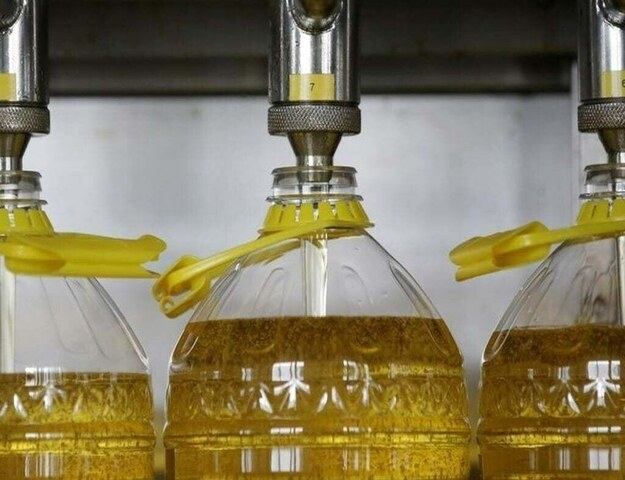ISLAMABAD: Federal Minister for National Food Security and Research Rana Tanveer Hussain said on Tuesday that Pakistan could significantly reduce its dependence on edible oil imports by promoting the olive sector, saving billions of rupees in foreign exchange each year.
Al Baraka Bank (Pakistan) Limited, in collaboration with the National Alliance for Safe Food, organized the “Al Baraka Pakistan Olive Summit 2.0” in Islamabad for the second consecutive year, reaffirming its commitment to advancing sustainable agriculture and developing Pakistan’s olive industry.
The event brought together leading experts, policymakers, and international stakeholders to explore opportunities for investment, innovation, and value chain development in Pakistan’s emerging olive sector. The summit was graced by Rana Tanveer Hussain, Federal Minister for National Food Security and Research, as the Chief Guest, along with Muhammad Atif Hanif, CEO – Al Baraka Bank (Pakistan) Limited, Federal Ministers, and Ambassadors from Turkey, Saudi Arabia, Italy, Bahrain, Spain, Indonesia, and Malaysia.
Rana Tanveer emphasized that the olive sector has the potential to become a new milestone in Pakistan’s economic growth.
He stated that the northern and southern regions of Pakistan possess vast potential for olive cultivation, and with a coordinated and strategic approach, Pakistan can join the ranks of the leading olive-producing countries.
Rana Tanveer Hussain said that achieving self-sufficiency in olive production is no longer a dream but an achievable reality. He added that olive oil can become a strong export brand for Pakistan — symbolizing “Made in Pakistan” as a mark of trust, quality, and health in global markets.
He highlighted that olive cultivation will not only strengthen rural economies but also increase farmers’ income and ensure the efficient use of agricultural land. Since olive trees are drought-tolerant, their cultivation will also contribute to water conservation and environmental protection.
The Federal Minister said that the Ministry is promoting the use of modern technology across all stages of the olive value chain — including cultivation, oil extraction, processing, packaging, and marketing. He added that Public-Private Partnership (PPP) models are being adopted to accelerate investment in this promising sector.
Rana Tanveer Hussain noted that the private sector has vast opportunities to invest in the olive industry. He announced that the government is establishing Olive Clusters across various regions to enhance collaboration among farmers, agricultural experts, and investors.
The Minister described the olive industry as a model of climate-smart agriculture, contributing to soil preservation, temperature regulation, and the reduction of carbon footprints.
Rana Tanveer Hussain emphasized that young farmers can play a vital role in advancing the olive sector, as they are capable of adopting modern scientific methods and engaging with new markets.
He added that the Ministry of National Food Security and Research is developing a National Olive Plan 2030, a policy framework focusing on research, investment, training, and international cooperation to promote sustainable olive cultivation in Pakistan.
With 10 million acres of cultivable land suitable for olive farming, only 55,000 acres have been developed so far. Out of a total requirement of 1.3 billion olive plants, 7 million have been planted. At full potential, Pakistan’s olive sector could generate over USD 3 billion annually through olive oil production — driving rural prosperity, employment, and export growth.
Speaking at the event, Atif Hanif, CEO – Al Baraka Bank (Pakistan) Limited, stated, “This initiative is not just about cultivating olives—it’s about cultivating opportunity, resilience, and prosperity.” He reaffirmed Al Baraka Bank’s commitment to empowering farmers, promoting agricultural sustainability, and enabling rural economic transformation through dedicated financing solutions and strategic global partnerships.
Through the Olive Summit 2.0, Al Baraka Bank (Pakistan) Limited continues to lead efforts in agriculture-led economic development, positioning the olive sector as a national priority for achieving a sustainable and self-reliant future for Pakistan.
Copyright Business Recorder, 2025


